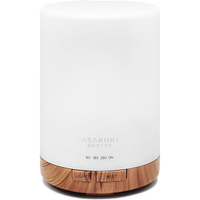Room fragrance designer reveals how the right scent can help you fall asleep and stay asleep for longer
The sweet smell of sleep
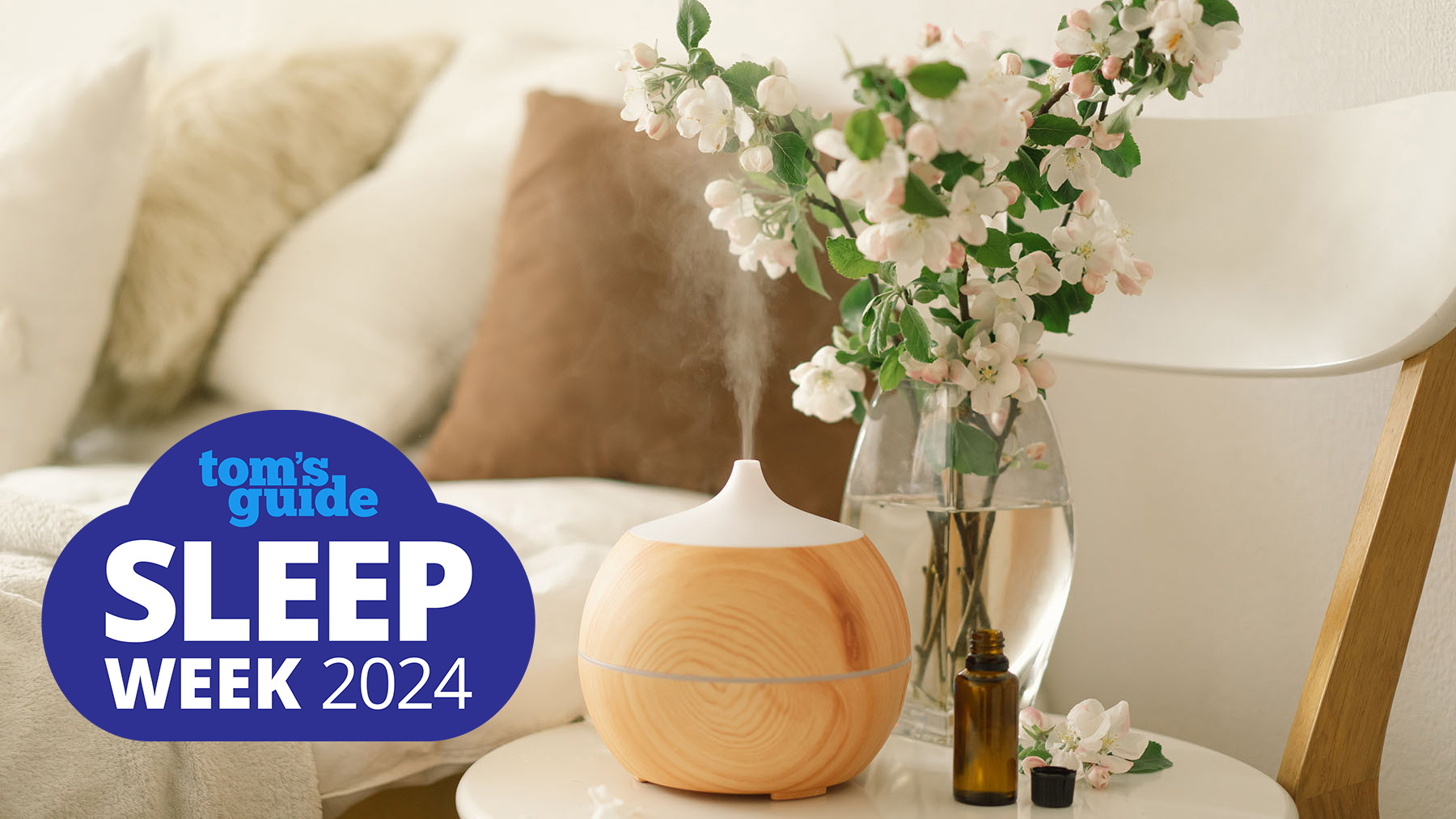
Do you find it difficult to drift off into the land of dreams? You may be surprised to discover that fragrance can play a part in helping you fall asleep and stay asleep for longer.
While we’re all aware of how light and sound impact sleep — it’s much harder to drift off in a room where light is peeping through the curtains or when you’re surrounded by noise — but did you realise the impact your sense of smell and fragrance can have on how you sleep?
According to the Sleep Foundation, our sense of smell can affect how long it takes to fall asleep and our overall sleep quality and quantity. “Because of the power of the sense of smell, certain fragrances may contribute to better sleep. Some scents promote relaxation that makes it easier to fall asleep and feel well rested the next day.”
To find out more about the impact of scent on our sleep, we spoke to Heather Lutz, Olfactory Expert at fragrance diffuser company, AromaTech.
Nectar Mattress: from $349 at Nectar Sleep
During Sleep Awareness Week, you can save up to 40% on a range of memory foam and hybrid mattresses at Nectar Sleep. We rate the Nectar Memory Foam as the best mattress for most sleepers with a smaller budget seeking a breathable and supportive all-foam bed to relieve pressure on joints, reducing aches and pains. A queen is now reduced to $649, with a lifetime warranty and a year's sleep trial.
Benefits of a good night's sleep
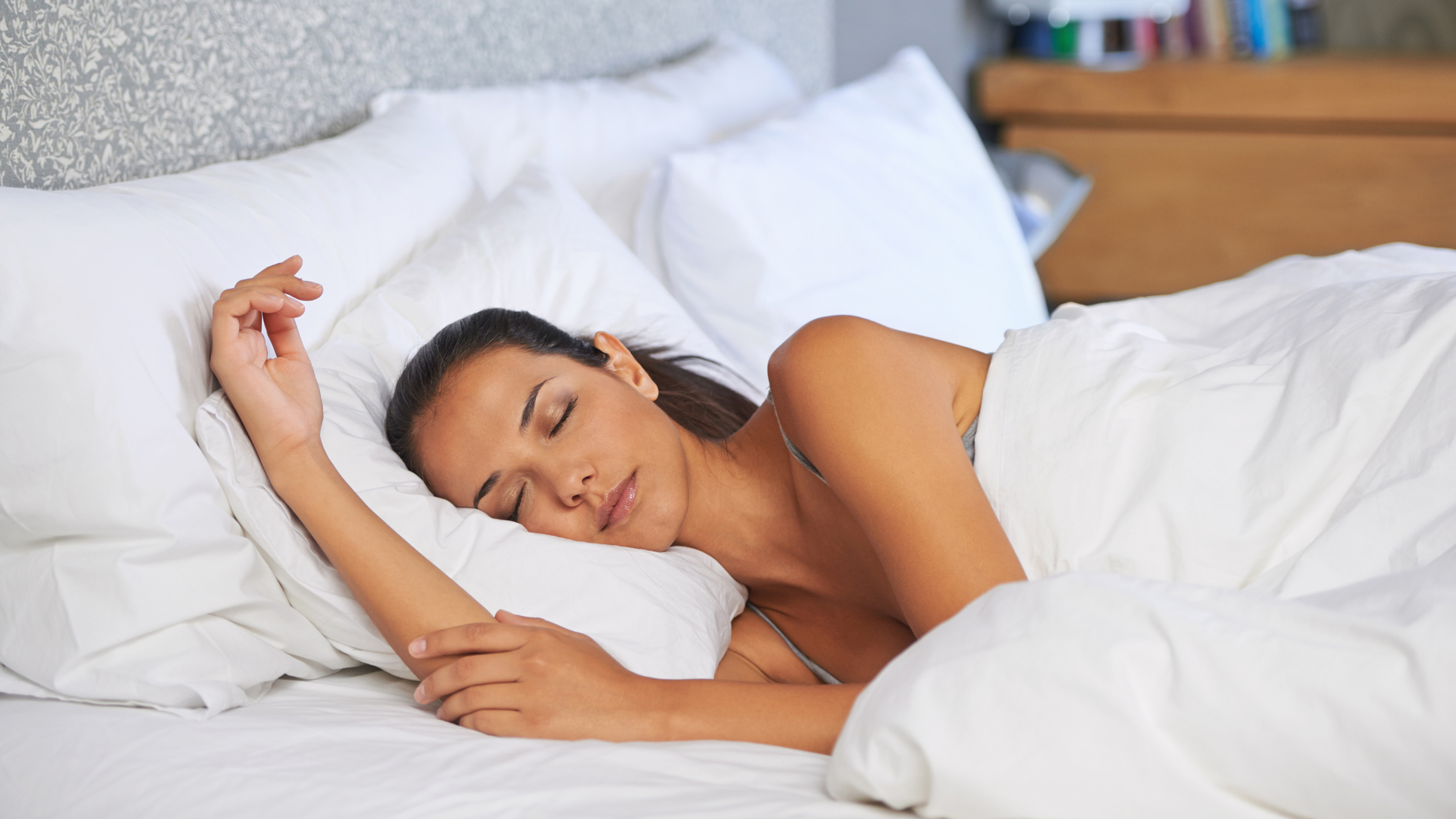
When you wake up in the morning after having a good night’s sleep, you feel refreshed, which benefits your overall well-being. Lutz says: “Our sleep habits play a vital role in our overall well-being. The benefits of a good night’s rest include improved mental function and mood, restored immune system, reduced levels of stress, lowered risk of heart problems, and improved memory.”
Conversely, we all know what it feels like when we’ve had a restless night, and it doesn’t favour our mood or productivity the next day. “If we don’t achieve a consistent full night’s rest, our productivity levels are negatively impacted due to our brains working overtime. This also affects our mental state, as our ability to make thoughtful decisions becomes clouded, and it becomes more difficult to control our feelings and emotions,” she adds.
How does our brain respond to fragrance?
So, what is the connection between scent and getting a good night’s sleep? Our sense of smell is controlled by the same part of our brain that manages sleep — the olfactory bulb.
Sign up to get the BEST of Tom's Guide direct to your inbox.
Get instant access to breaking news, the hottest reviews, great deals and helpful tips.
Lutz explains: “Our brain function can be heavily impacted by fragrances. Scent is recognized by our sensory neurons in the nose that are carried to our olfactory bulb and spread to other parts of the brain to process the smell. Because of this, it has the ability to calm and relax us, give us energy and boost productivity and even connect us with positive and negative memories.”
How does fragrance help us relax?
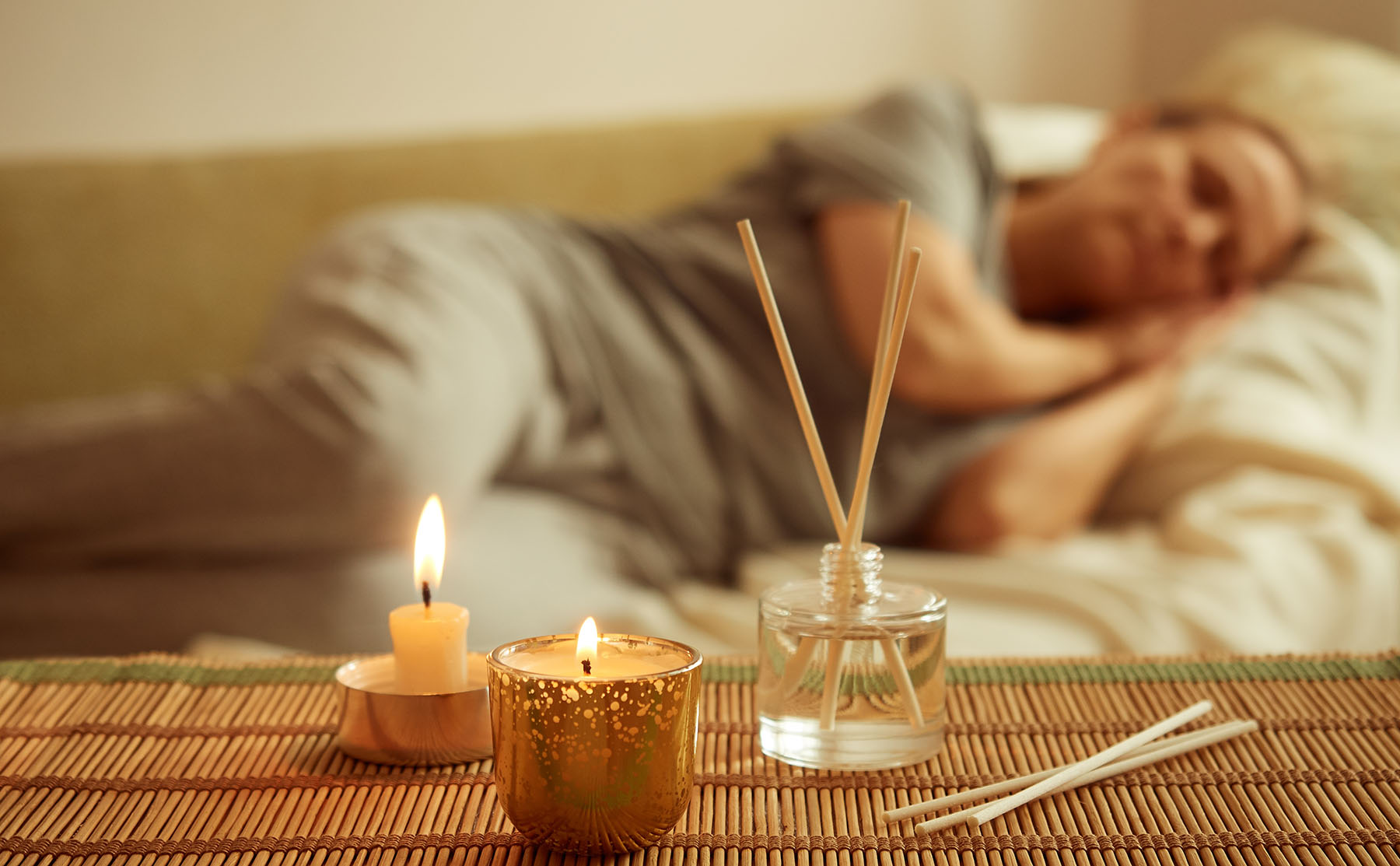
The sense of smell and fragrance plays an important role in the physiological effects of mood, stress and working capacity, according to the National Library of Medicine, with studies suggesting a clear link between how fragrance affects memory, thoughts and emotions. So a calming scent can boost your mood or calm you down by reducing anxiety and stress that can hinder sleep quality.
“Fragrances can help us relax because they stimulate the limbic system, the part of the brain that controls memory and emotions,” says Lutz.
Fragrances that induce sleep and relaxation
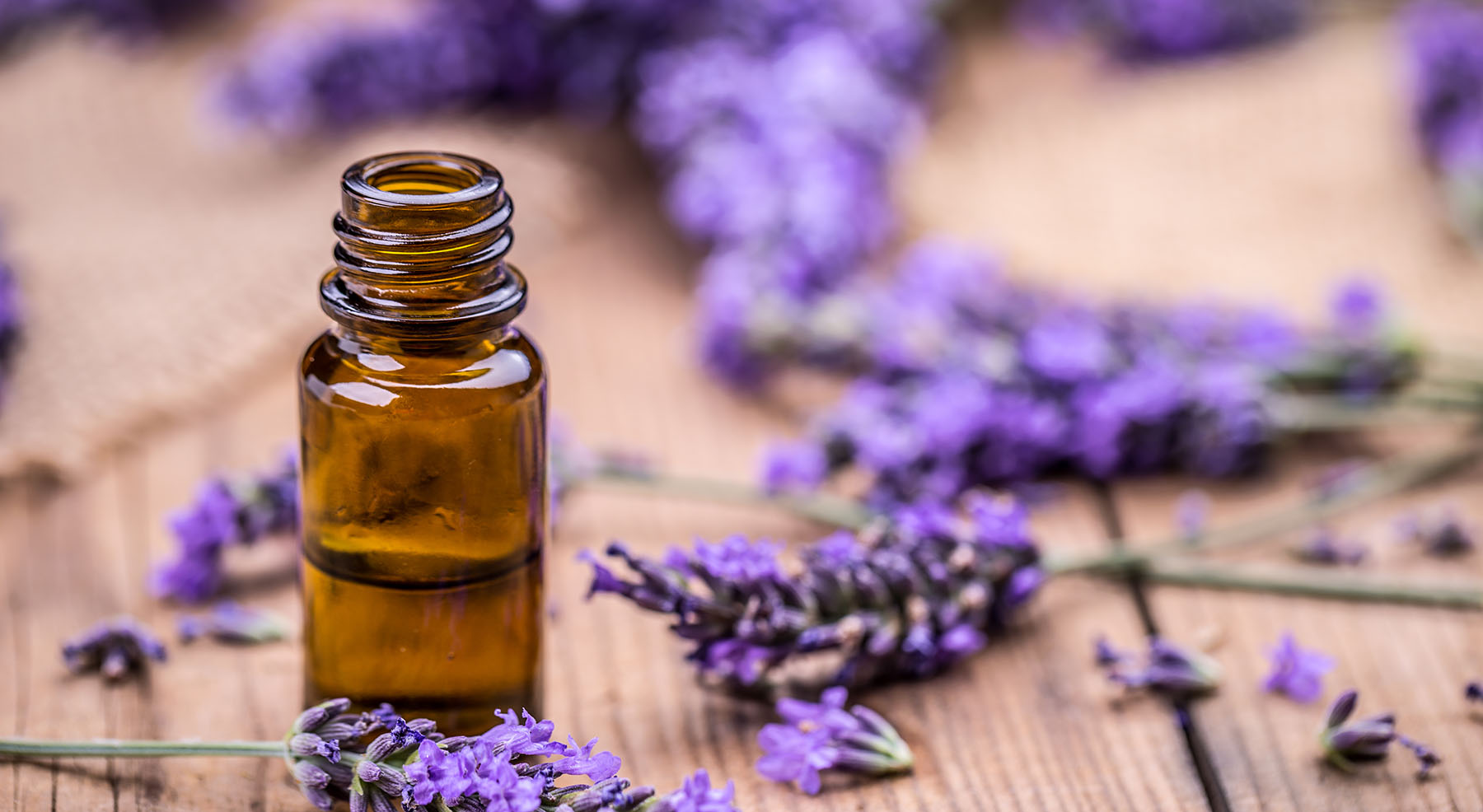
To ease into relaxation, Lutz recommends soft, woody scents that contain notes like palo santo or sandalwood that immediately ground you. “Other popular scents like lavender and eucalyptus contain naturally therapeutic qualities that promote calmness and relaxation,” she adds.
Here is the lowdown on which scents can aid a peaceful night.
Lavender
Lavender is a highly versatile oil that has been shown to reduce stress, improve mood, increase sleep quality, and reduce anxiety. Inhaling lavender before sleep can help to ease your temperature and heart rate. It's also one of the cut flowers we recommend to make your house smell amazing.
Ylang Ylang
Abstracted from the Cananga Tree flower, Ylang Ylang is native to South Asia. It has an exotic fruity and floral fragrance with heart-reducing properties similar to lavender. It’s known to reduce stress, anxiety, tension and sleeplessness, making it a good nighttime fragrance.
Bergamot
Bergamot is similar to lavender and ylang-ylang as it can lower blood pressure and heart rate. It also has anti-inflammatory and anti-bacterial properties. I add a few drops of bergamot to my essential oil burner in the daytime, as I find it has an uplifting, citrusy scent. And even though most citrus fragrances are best left for the daytime, bergamot oil can be used at night as it helps the nervous system calm down.
Sandalwood
If you struggle to get into a good sleeping pattern, sandalwood’s earthy, woody scent can help. It’s known to be one of the best essential oils for sleep apnea and inducing relaxation, and it is a good base when blending a mix of oils.
Pala Santo
I’ve used a fair few essential oils in the past, but I’ve never come across palo santo before. Its name translates into “holy wood” in Spanish, as it’s believed to ward off negative energy. Breathe in the woody, sweet scent with its slight fruity aroma to ease stress, anxiety and nervous tension before bed.
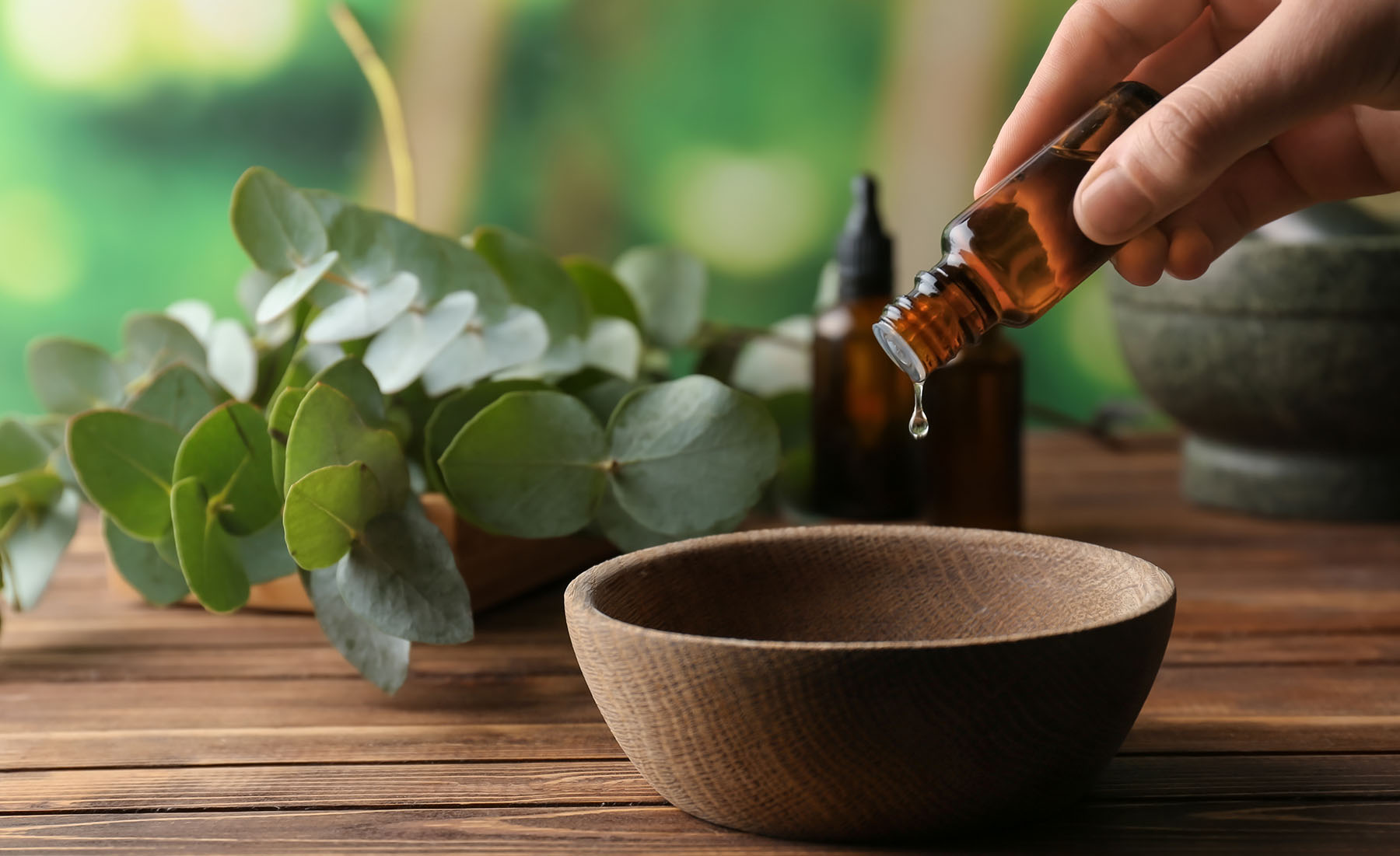
Eucalyptus
If you suffer from sinus or allergy problems, eucalyptus can help clear your airways and allow you to breathe more easily. So, instead of waking up with a blocked nose, you’ll have a more restful night. Peppermint oil is another good option if you have sinus problems, although it can also help to wake you up.
Rose
Although roses are abundant, they are one of the most expensive essential oils, as it takes so many petals to produce a small amount of oil. However, despite its cost, it has many benefits, including easing stress by releasing endorphins.
Geranium
If rose oil exceeds your budget, geranium oil is a good substitute. It has a sweet, floral fragrance that calms and relaxes the mind and body and works as a natural antidepressant.
Chamomile
You may enjoy chamomile tea before bed, but you can also breathe in the fragrance of Roman chamomile oil to induce sleep. It’s nature’s natural sedative and can help reduce anxiety and create a sense of calm.
Jasmine
Sweet-smelling jasmine is known as an antidepressant and as a sedative to induce sleep. It’s also one of 7 indoor plants that will make your home smell nicer, so your whole house will smell beautiful.
Sweet Marjoram
This sweet oil is particularly effective at helping you stay asleep, as it calms the nerves and relaxes muscles, promoting relaxation, decreasing anxiety and reducing insomnia symptoms. As a sleeper who wakes up at night and finds it hard to drift back off, I’ll add this to my shopping list.
Scent to avoid at bedtime
But there are a few scents to stay clear of at bedtime as they may have the reverse effect. “Fragrances containing citrus or other verdant notes tend to be more invigorating and mentally stimulating, making them more suitable for daytime use,” adds Lutz.
Everyone has personal preferences when it comes to scent. Although we recommend the above to aid sleep and relaxation, it is likely to have the reverse effect if you are adverse to a particular smell. So, go with what works best for you.
Ways to use fragrance before bedtime
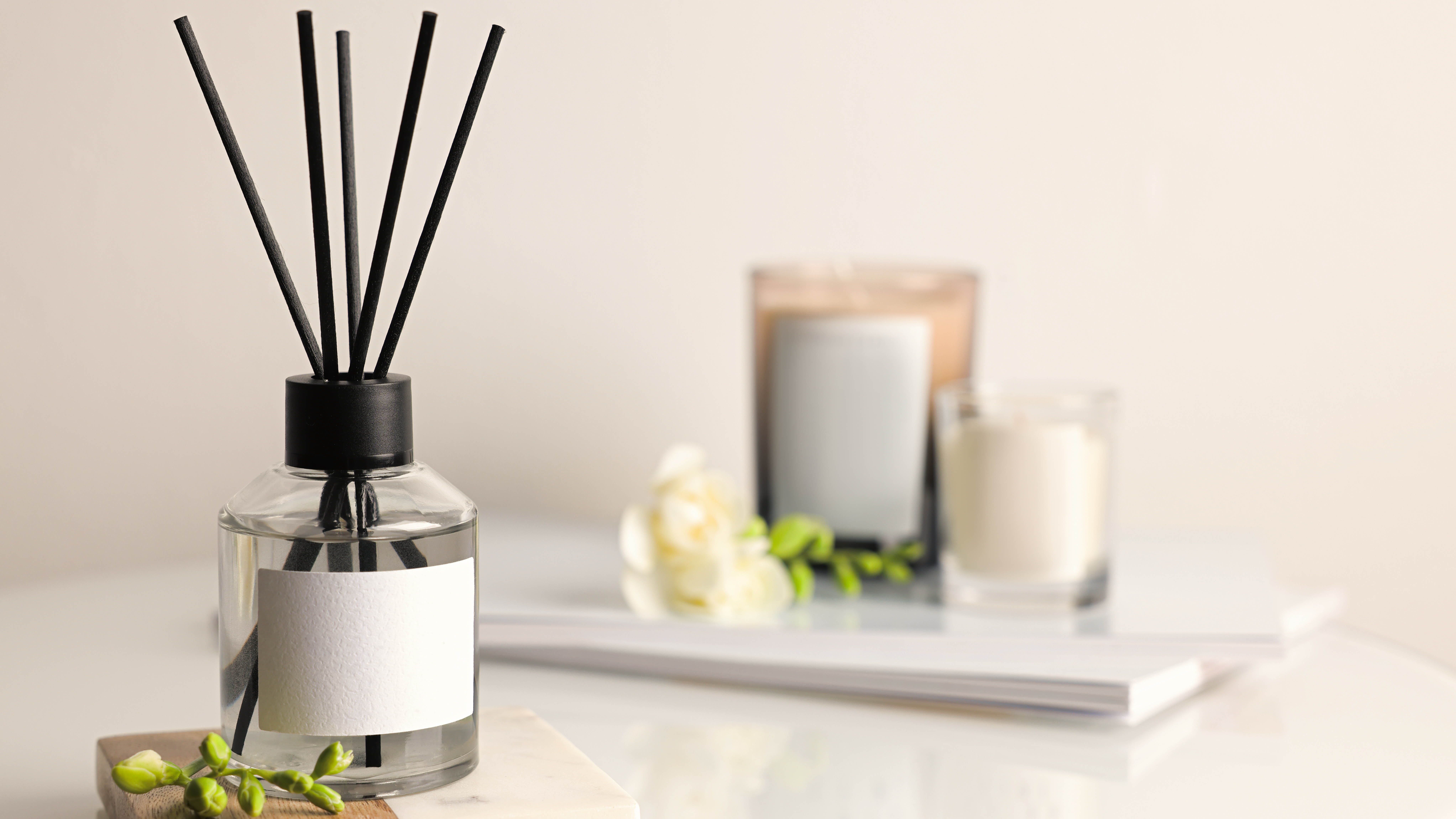
Scent can be used before bedtime to promote relaxation in many ways.
Electric diffusers
A room diffuser is one way to fill a room with fragrance. Lutz recommends using an electric diffuser to help promote sleep. The AromaDream ($125, AromaTech) allows you to schedule when the scent is released through an app (currently only available on iOS devices), so you can rely on a regular boost of fragrance when you need it most.
“I recommend placing your diffuser in your bedroom and scheduling it to begin diffusing while you’re getting ready to bed so that it initiates feelings of relaxation,” she adds.
Ceramic diffuser
A budget option is a ceramic diffuser, whereby water and a few drops of essential oil are placed in a water reserve above a tealight candle. Walfront’s white, floral design ceramic tealight oil burner ($10, Walmart) is pretty and comes in at a good price.
However, for safety, remember to extinguish the tealight candle before you go to sleep.
Reed diffusers
Reed diffusers allow fragrance to diffuse into the air throughout the entire room continuously and can be placed in your bedroom to aid sleep. The benefit over other diffusers is they don’t require electricity or a flame to heat the oil while still giving off a constant scent.
Neom has a beautiful range of reed diffusers, including the Perfect Night’s Sleep Diffuser ($48, Neom), which includes English lavender, chamomile and patchouli.
Asakuki 300ml Essential Oil Diffuser: was $34 now $24 at Amazon
This 5-in-1 humidifier and natural fragrance aroma diffuser is reduced by 29%. It contains a 300ml water tank, 7 different LED light colors, multiple mist timer modes, and a safety auto-switch that prevents it overheating in case it runs out of water.
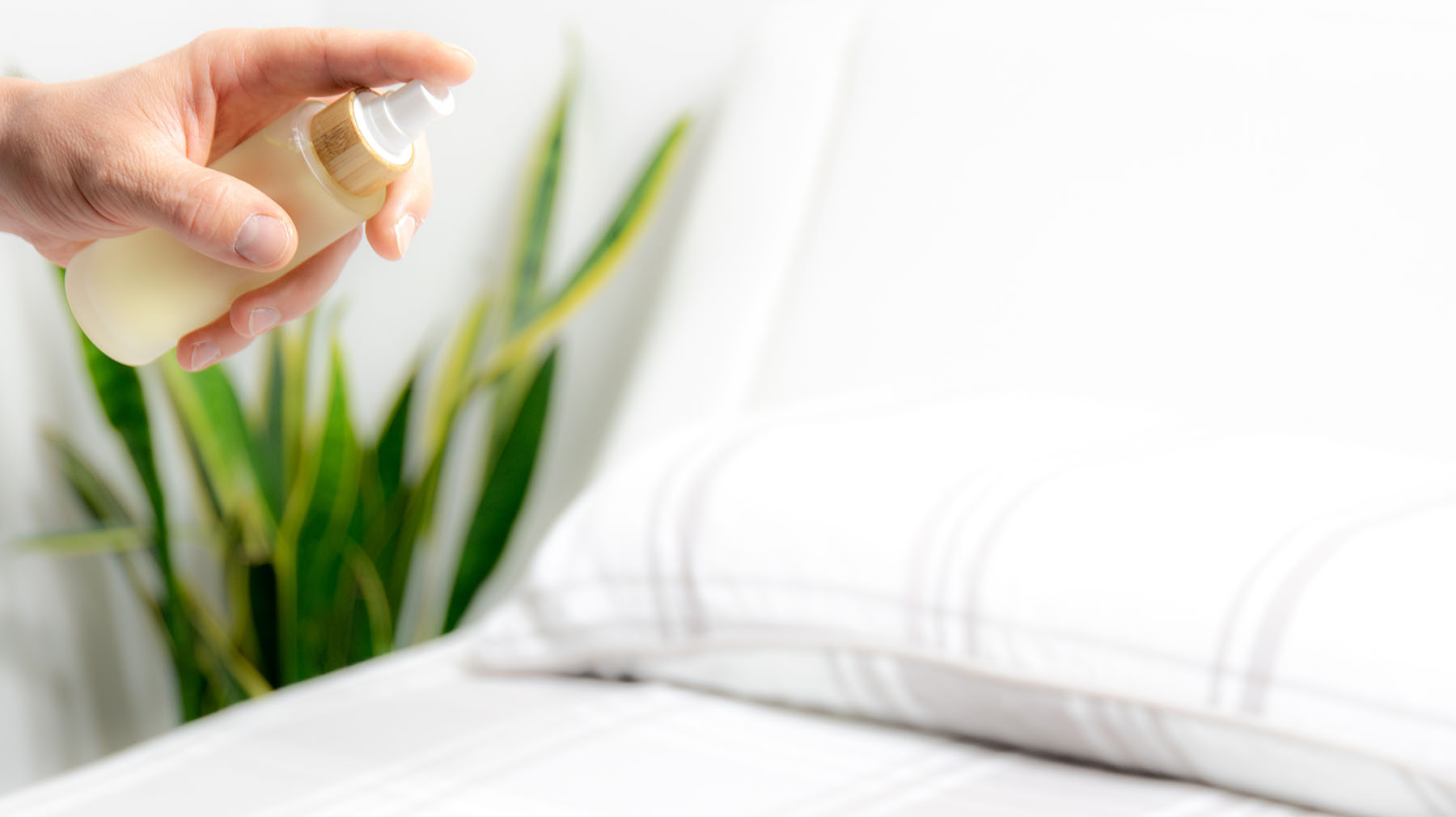
Pillow sprays
You can make an essential oil spray by diluting your preferred fragrant oil with water and adding it to a clean spray bottle. Then, before bed, spray your pillow with the fragrance.
Alternatively, you could buy a spray like the L’occitane Cocon de Serenite relaxing pillow mist ($26, Amazon) or Tisserand’s Sleep Better Pillow Mist ($14, Amazon).
Add essential oil to your bath
A warm bath before bed with a few added drops of essential oil in the water can help calm your mood. However, before adding it to your bath water, ensure you mix the essential oil with a carrier product, such as a bath gel or carrier oil like sunflower oil. The Tisserand Institute says that essential oils are not water soluble and can sting your skin if not dispersed properly.
Besides fragrance helping you drift off into a peaceful night's sleep, discover how decluttering your bedroom can make you fall asleep faster.
More from Tom's Guide

Camilla Sharman has worked in publishing and marketing for over 30 years and has covered a wide range of sectors within the business and consumer industries both as a feature, content, and freelance writer.
As a business journalist, Camilla has researched articles for many different sectors from the jewellery industry to finance and tech, charities, and the arts. Whatever she’s covered, she enjoys delving deep and learning the ins and out of different topics, then conveying her research within engaging content that informs the reader. In her spare time, when she’s not in her kitchen experimenting with a new recipe, you’ll find her keeping fit at the gym. In the pool, stretching at a yoga class, or on a spin bike, exercise is her escape time. She also loves the great outdoors and if she’s not pottering about in her garden, she’ll be jumping on her bike for a gentle cycle ride.


